Emerging Customer Service Trends to Watch in 2025
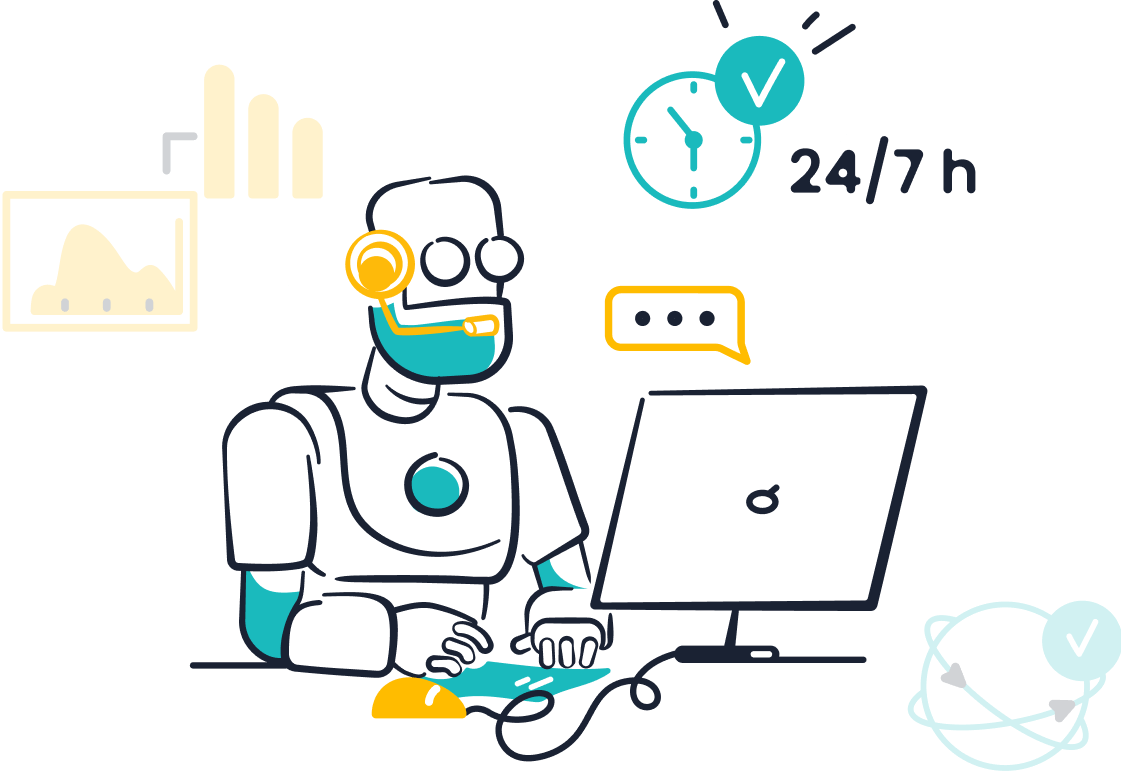
Staying ahead of customer service trends in 2025 is crucial for businesses aiming to thrive. Poor customer service costs U.S. companies $75 billion annually, while improving customer experience can boost revenue by 10-15%. Customers now expect proactive support, multilingual support, and seamless omnichannel experiences across different forms of customer service. Tools like Sobot’s AI-driven solutions help businesses meet these demands, enhancing customer satisfaction and loyalty.
AI-Driven Changes in Customer Service

The rise of generative AI and its impact on customer interactions
Generative AI is reshaping how you interact with businesses. By creating context-aware and intuitive responses, it enhances user experiences and builds customer loyalty. For example, companies using "invisible" AI integrations have seen a 30% increase in customer retention rates. This technology personalizes interactions, making them more engaging and efficient. It also automates repetitive tasks, allowing support teams to focus on complex issues. As a result, generative AI is driving a significant customer service transformation, improving satisfaction and operational efficiency.
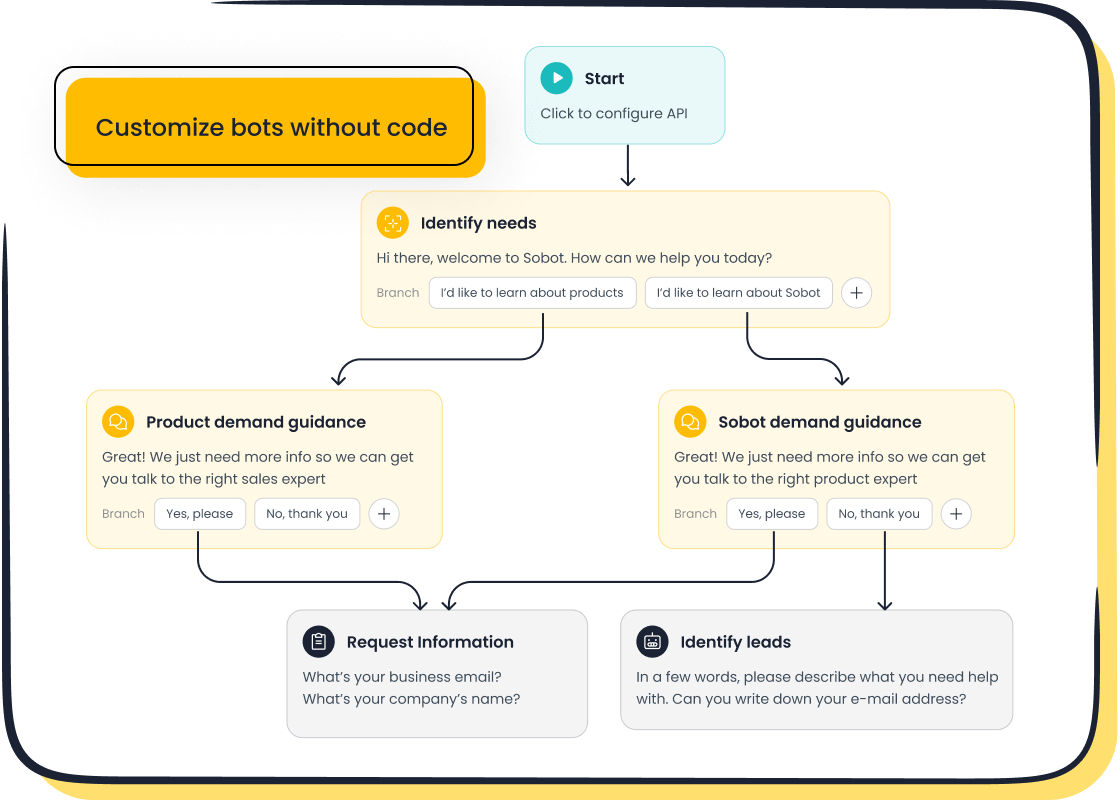
Sobot Chatbot: Revolutionizing customer service with AI
Sobot's AI-powered Chatbot is at the forefront of this transformation. It automates customer interactions, solving regular queries 24/7 and assisting agents with complex tasks. Businesses using the Sobot Chatbot have reported remarkable improvements. In e-commerce, response times dropped by 40%, while healthcare resolution rates increased by 35%. The chatbot’s multilingual capabilities and no-coding-required setup make it accessible to businesses of all sizes. By integrating seamlessly across different forms of customer service, Sobot ensures a consistent and personalized experience for your customers.
Benefits of automation for efficiency and scalability
AI-driven automation is revolutionizing customer service by boosting efficiency and scalability. Brands have experienced a 37% reduction in first response times and a 52% decrease in resolution times. Automation also improves customer satisfaction, with a 1% increase in CSAT scores. Sobot’s solutions, like its omnichannel platform, unify customer interactions across channels, streamlining operations and reducing costs. By adopting automation, you can handle higher volumes of inquiries without compromising service quality, ensuring your business stays competitive in 2025.
Proactive and Predictive Customer Service Trends
Leveraging analytics to anticipate customer needs
Proactive support relies heavily on analytics to predict what your customers need before they even ask. By analyzing historical data, businesses can identify patterns and trends that reveal customer expectations. For instance, companies that use predictive analytics are 23 times more likely to outperform competitors in acquiring new customers. They are also seven times more likely to retain existing ones. This approach allows you to address potential issues early, ensuring a seamless experience across different forms of customer service.
Predictive analytics also helps you engage at-risk customers by identifying dissatisfaction triggers. For example, if a customer frequently contacts support about delayed deliveries, you can proactively offer solutions like expedited shipping. This not only improves satisfaction but also strengthens loyalty. In 2025, leveraging analytics will be essential for meeting evolving customer expectations and staying ahead in the competitive landscape.
Real-world examples of predictive service in action
Industries worldwide are already reaping the benefits of predictive service. In retail, a chain used time series forecasting to predict seasonal sales spikes, resulting in a 15% sales increase. Similarly, a hospital applied predictive models to reduce readmission rates by 20%. These examples highlight how predictive analytics drives operational efficiency and enhances customer engagement.
Other success stories include Penske's Proactive Diagnostics, which reduced vehicle downtime and improved customer satisfaction. Kanerika developed a model to predict vehicle breakdowns, cutting repair costs significantly. These real-world applications demonstrate the transformative potential of predictive service across industries.
Sobot's omnichannel solution for proactive customer engagement
Sobot's omnichannel solution empowers you to deliver proactive support by unifying customer interactions across channels. This platform integrates AI-driven tools to analyze customer data and anticipate needs. Businesses using Sobot have reported a 35% reduction in waiting times and a 40% increase in interactive marketing touchpoints. These metrics highlight how Sobot enhances engagement and ensures seamless omnichannel experiences.
By consolidating customer data into a unified workspace, Sobot enables your team to provide personalized and efficient service. Whether it's resolving issues faster or proactively addressing concerns, Sobot's solution ensures you meet customer expectations while improving satisfaction. This approach not only boosts loyalty but also positions your business as a leader in customer service transformation.
Personalization in Customer Service
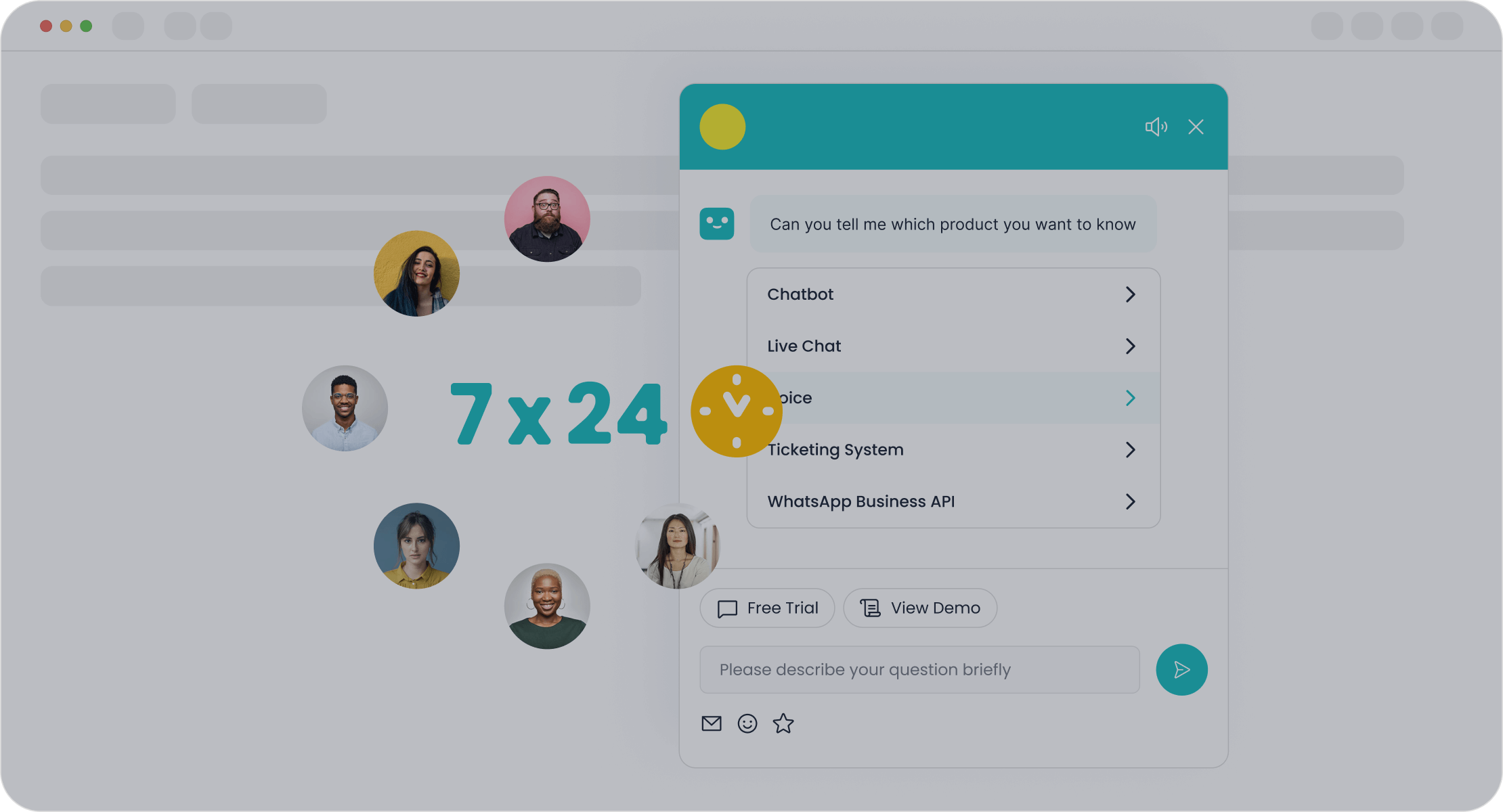
The growing demand for hyper-personalized interactions
Personalization has become a cornerstone of modern customer service. Customers now expect brands to tailor their experiences to individual preferences. This shift is not just a trend but a necessity for businesses aiming to thrive in 2025. The following table highlights key statistics that emphasize the importance of personalization:
| Statistic | Insight |
|---|---|
| Almost all consumers | Expect brands to provide personalization in some way. |
| 80% of businesses | Report increased consumer spending (averaging 38% more) when experiences are personalized. |
| Companies incorporating personalization | Tend to see a 10-15% increase in revenue. |
These figures show how advanced personalization fosters deeper customer engagement and loyalty. By meeting these expectations, you can create seamless experiences that drive customer satisfaction and long-term success.

How Sobot Chatbot enables tailored customer experiences
Sobot Chatbot empowers businesses to deliver personalized service effortlessly. It tracks customer profiles, patterns, and preferences to customize interactions. For example:
- It automates workflows and analyzes customer data to provide tailored solutions.
- It manages conversations across various channels, ensuring seamless experiences throughout the customer journey.
By leveraging these capabilities, Sobot Chatbot helps you create personalized experiences that resonate with your audience. This approach not only enhances customer satisfaction but also builds stronger connections with your customers.
Strategies for delivering personalized service at scale
Scaling personalization requires a strategic approach. You need to invest in tools and processes that unify customer data and enable advanced personalization. Consider these strategies:
- Gather and analyze zero and first-party data to understand customer behavior.
- Use predictive analytics to anticipate needs and deliver timely solutions.
- Implement AI-driven tools like Sobot Chatbot to automate and personalize interactions.
With 82% of consumers willing to share personal data for better experiences, activating these strategies can deepen engagement and foster loyalty.
By adopting these methods, you can deliver personalized service at scale while maintaining efficiency and consistency across different forms of customer service.
Balancing AI with Human Empathy
Why human interaction remains essential in customer service
AI has transformed customer service, but human interaction remains irreplaceable. While AI excels at efficiency, it cannot replicate human experiences, emotions, or empathy. Customers often seek reassurance and understanding during critical moments. For example, a Forbes survey revealed that 20% of consumers prefer human agents for complex tasks, and nearly half value empathy during stressful situations. Similarly, PwC found that 82% of U.S. consumers desire more human interaction in their customer experiences. These findings highlight the importance of balancing AI with human empathy to meet customer expectations.
Qualitative insights further emphasize this need. AI can answer queries but often misses the underlying frustrations driving customer behaviors, such as cart abandonment. Human agents can uncover these emotions and provide tailored solutions, fostering trust and loyalty. In 2025, combining AI's efficiency with human empathy will be essential for delivering exceptional customer service across different forms of customer service.
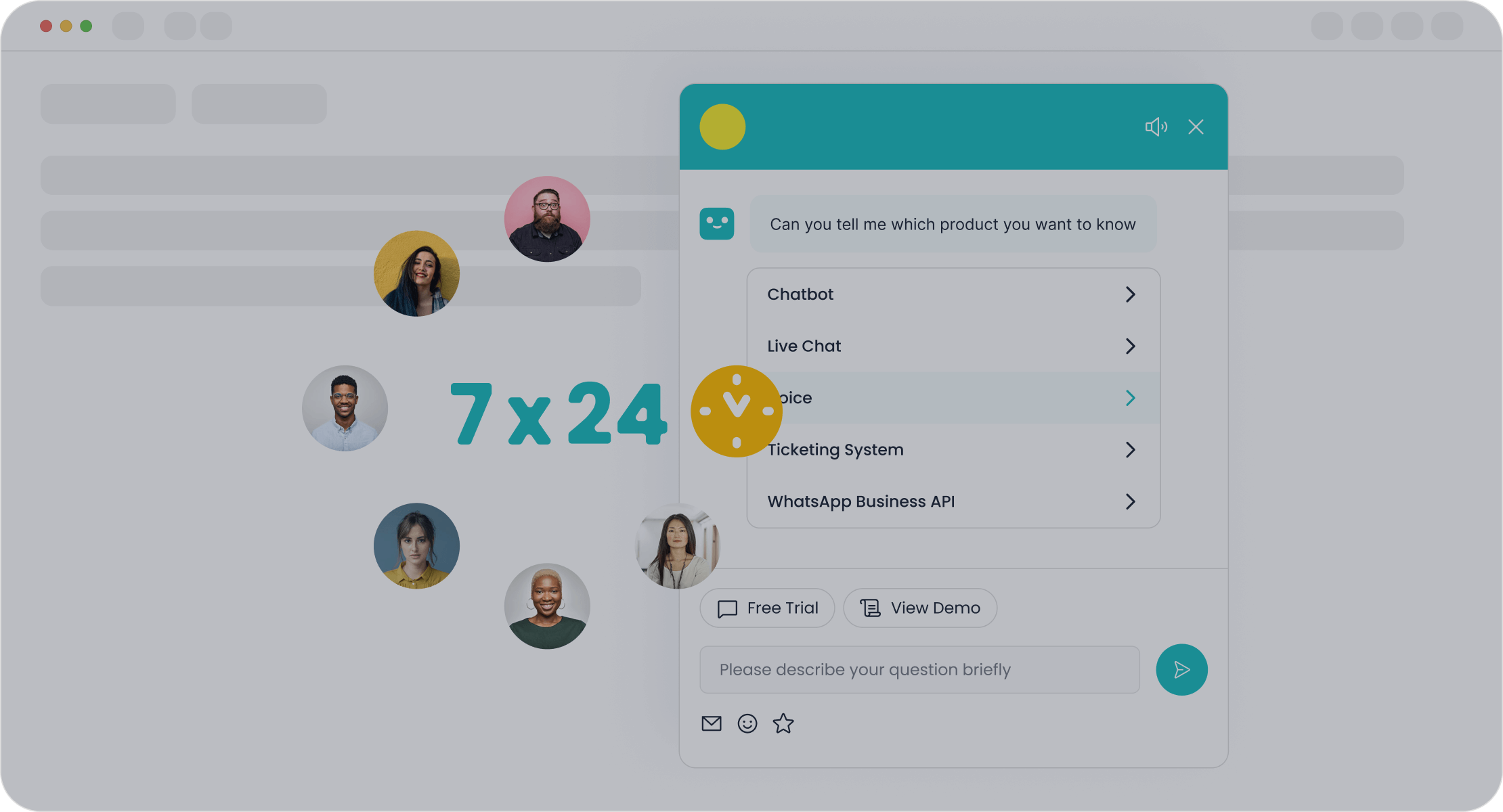
Combining AI tools like Sobot Chatbot with human support
Integrating AI tools with human support creates a powerful synergy. Sobot Chatbot, for instance, automates repetitive tasks, allowing agents to focus on complex issues. Its features, such as real-time customer data analysis and intent recognition, enable personalized interactions. Businesses using Sobot's omnichannel solution benefit from seamless communication across channels, enhancing both efficiency and empathy.
For example, predictive proactivity anticipates customer needs, while voice-driven interactions facilitate natural communication. These capabilities ensure that AI complements human agents rather than replacing them. According to research, 84% of businesses believe AI tools improve customer satisfaction, and 86% agree that AI will transform customer experiences. By combining AI with human support, you can deliver empathetic and efficient service that meets the demands of 2025.
Training employees to complement AI-driven systems
Training employees to work alongside AI is crucial for maximizing its potential. Effective training programs enhance employee engagement, skill acquisition, and overall productivity. For instance, interactive video training increases retention rates by 83%, while mobile platforms for compliance achieve 95% completion rates. Measuring training outcomes through metrics like performance data ensures a strong return on investment.
Sobot supports businesses in this transition by providing tools that simplify AI integration. Its intuitive platforms require no coding, making it easier for employees to adapt. By equipping your team with the skills to complement AI, you can create a customer service environment that combines technological efficiency with human empathy. This approach not only improves service quality but also strengthens customer relationships.
Data Privacy and Trust in Customer Service
The importance of transparency and ethical practices
Transparency and ethical practices are essential for building trust in customer service. Research from the Harvard Business Review shows that brands perceived as trustworthy can achieve a 24% increase in Net Promoter Scores by providing clear information about their supply chains and ethical practices. Similarly, the Edelman Trust Barometer reveals that 76% of consumers consider transparency vital for trust. These findings highlight how openness fosters loyalty and strengthens customer relationships.
Patagonia exemplifies this approach. By openly sharing its sustainability efforts and challenges, the brand has cultivated a loyal customer base that aligns with its mission. This demonstrates that ethical practices not only enhance trust but also contribute to long-term profitability. In 2025, prioritizing transparency will be crucial for businesses aiming to deliver exceptional customer service and maintain a competitive edge.
Compliance with data protection regulations in 2025
Adhering to data protection regulations ensures customer trust and safeguards sensitive information. Businesses must comply with frameworks like GDPR and CCPA to meet evolving standards. A recent study highlights key compliance metrics for 2025:
| Compliance Metric | Percentage | Description |
|---|---|---|
| Multiple Compliance Systems | 59% | Organizations operate multiple systems to meet various compliance needs. |
| Improved Risk Approaches | 40% | Risk leaders enhanced management strategies for better compliance outcomes. |
| Effective Cyber Regulations | 73% | Leaders agree regulations effectively reduce cyber risks. |
| Data Protection Frameworks | 84% | Professionals state adherence to frameworks is mandatory. |
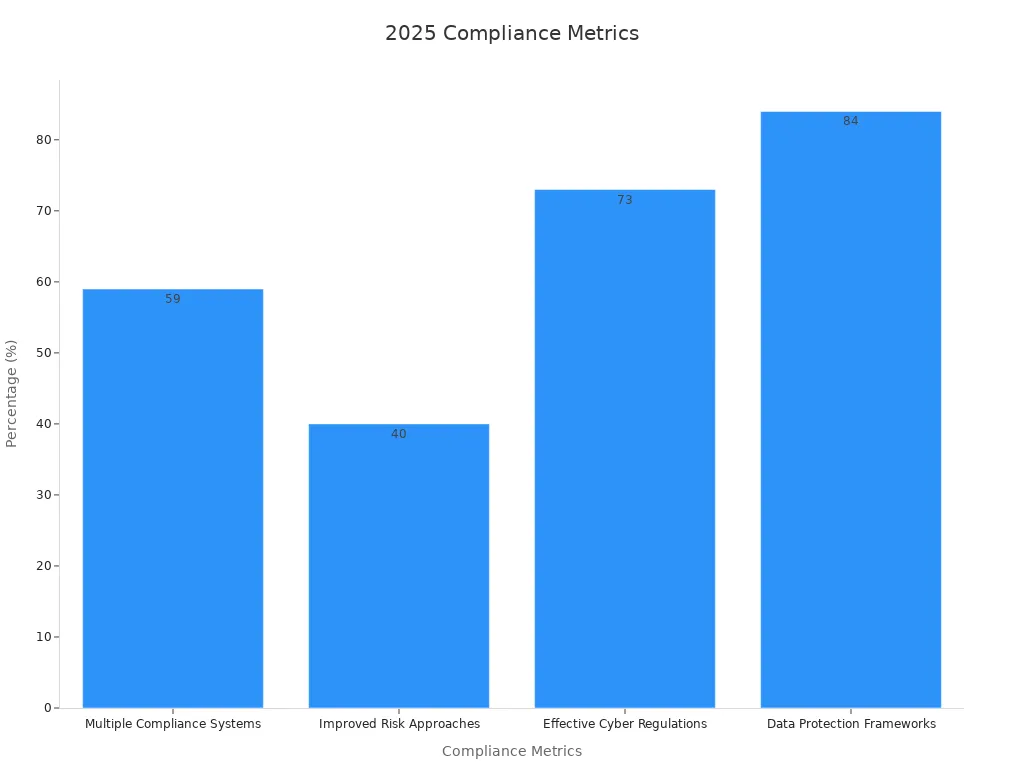
These metrics emphasize the importance of robust compliance strategies. Sobot’s solutions, such as its omnichannel platform, help businesses align with these regulations by offering secure and reliable tools for managing customer interactions.

Building trust through secure and reliable solutions like Sobot
Trust begins with secure and reliable customer service solutions. Sobot ensures data privacy through advanced encryption and compliance with global standards. Its omnichannel platform consolidates customer interactions into a unified workspace, reducing the risk of data breaches. By integrating AI-driven tools, Sobot also enhances operational efficiency while maintaining strict data protection protocols.
For example, Samsung achieved a 97% customer satisfaction rate after implementing Sobot’s solutions. The platform’s secure infrastructure allowed Samsung to unify communication channels and provide seamless service. This success story underscores how secure solutions not only build trust but also improve customer satisfaction. By choosing reliable tools like Sobot, you can foster loyalty and ensure compliance in 2025.
Employee Experience and Training for Future Customer Service
The link between employee satisfaction and customer satisfaction
Satisfied employees are the backbone of excellent customer service. Research highlights a direct connection between engaged employees and happy customers. The following table illustrates key findings:
| Finding | Description |
|---|---|
| Positive Effect | Higher levels of employee engagement lead to increased customer satisfaction and retention. |
| Industry Focus | The research specifically examines the car rental industry. |
| Methodology | Utilizes retirement-induced employee turnover to analyze the effects of employee engagement. |
When employees feel valued and supported, they are more likely to deliver exceptional service. For example, companies that prioritize employee well-being often see higher customer retention rates. This relationship underscores the importance of investing in your team to enhance customer experiences.
Upskilling employees to adapt to AI-driven changes
Adapting to AI-driven customer service environments requires continuous learning. Upskilling your team ensures they can effectively manage AI tools and deliver high-quality service. Key benefits of upskilling include:
- Improved understanding of AI tools enhances service quality.
- AI-driven personalized learning boosts employee engagement and job satisfaction.
- A strategic approach to training bridges the skills gap in customer service roles.
For instance, Sobot's intuitive platforms simplify AI integration, making it easier for employees to adapt. By equipping your team with the right skills, you can create a workforce that thrives in an AI-enhanced environment.
Creating a supportive work environment for customer service teams
A supportive work environment fosters employee satisfaction and productivity. Simple measures like recognizing achievements and providing growth opportunities can make a significant difference. For example, interactive training programs increase retention rates by 83%, while mobile learning platforms achieve 95% completion rates.
Sobot supports businesses in creating such environments by offering user-friendly tools that reduce workload and enhance efficiency. When your team feels supported, they are more likely to excel, ensuring your customer service remains top-notch.
To stay competitive in 2025, you must embrace emerging customer service trends. Businesses that prioritize AI, personalization, and data privacy see significant benefits. For instance, a 1% increase in customer satisfaction can boost retention rates by 5%. Additionally, 64% of customers will switch to competitors after a single bad experience. Sobot’s solutions, like its AI-powered Chatbot and omnichannel platform, help you deliver exceptional service while fostering customer loyalty. By investing in employee training and leveraging advanced tools, you can ensure long-term success.
FAQ
What are the key customer service trends to watch in 2025?
AI, personalization, and omnichannel solutions dominate 2025 trends. Tools like Sobot's Chatbot and omnichannel platform help businesses enhance efficiency, customer satisfaction, and loyalty. Learn more.
How does Sobot ensure data privacy in customer service?
Sobot uses advanced encryption and complies with global standards like GDPR. Its secure omnichannel platform protects customer data while enhancing operational efficiency. Explore Sobot's solutions.
Why is personalization important in customer service?
Personalization boosts customer satisfaction and loyalty. For example, 80% of businesses report increased spending when experiences are personalized. Sobot's Chatbot enables tailored interactions across channels. Discover more.
See Also
Best Reviewed Cloud Contact Center Services For 2024
Leading Cloud Contact Center Solutions To Consider In 2024
Best Reviewed Contact Center Solutions Available In 2024